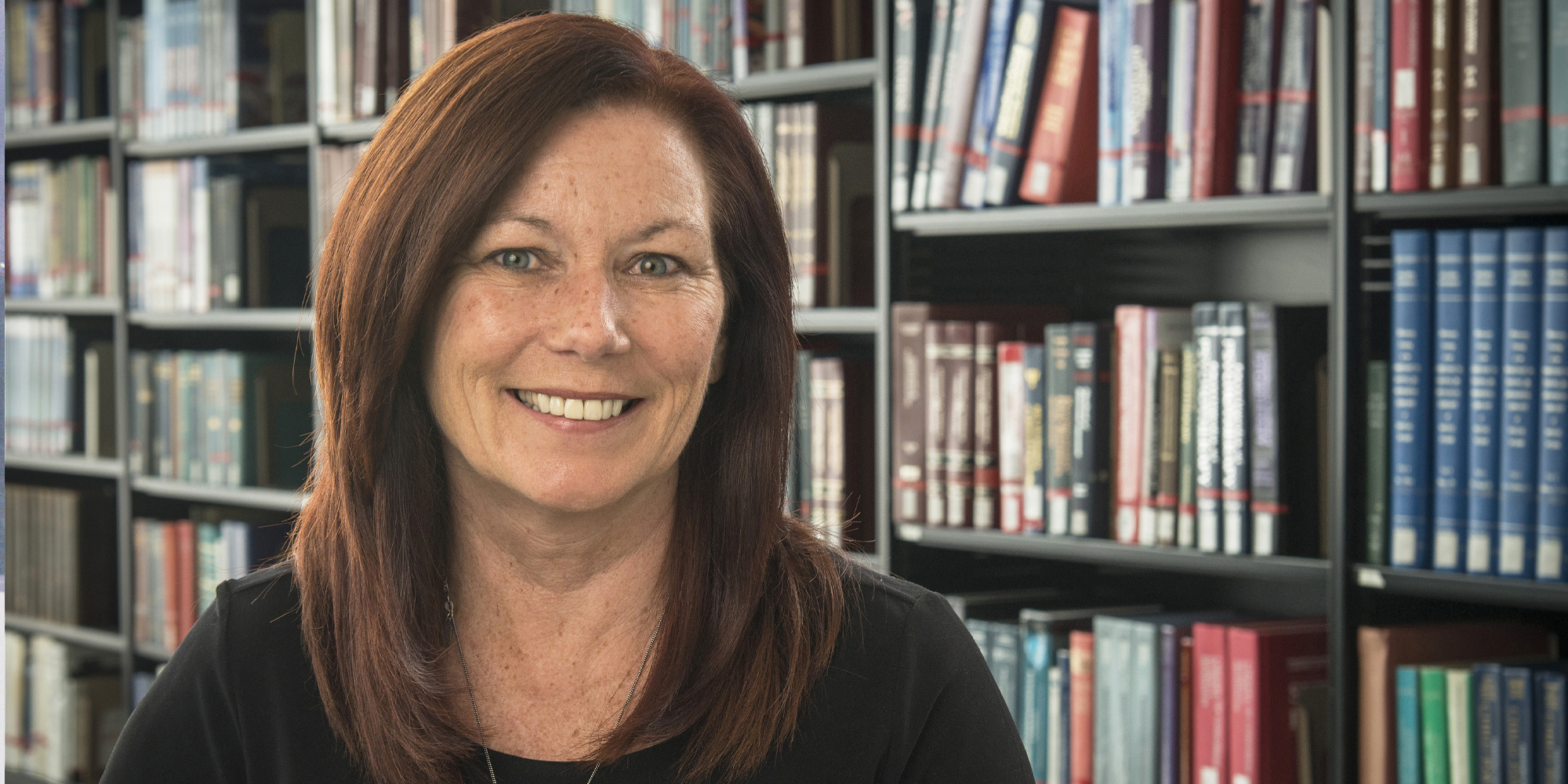
(Photography by Lloyd Degrane)
Change and continuity at the Crown Family School of Social Work, Policy, and Practice.
In the past year, the Crown Family School of Social Work, Policy, and Practice has continued a steady expansion of initiatives and programs designed to address pressing social challenges. Guiding this work is the vision of the school’s first dean, Edith Abbott, PhD 1905, a forward-thinking leader who understood that lasting social change—and real impact—would happen only if rigorous research informed policy and practice.
Abbott’s pioneering work more than one hundred years ago shaped a model of interdisciplinary inquiry and impact that continues to this day. Inspired by this tradition, Crown Family School scholars conduct research on public policies, human service organizations, social programs, and social work practice, studying such far-ranging topics as child welfare, urban education, criminal justice disparities, homelessness, health care, policing, youth violence prevention, urban politics, low-wage employment, immigration, child and family policy, and substance use and abuse.
Earlier this year, we received a gift of $75 million from James and Paula Crown and the Crown family—the largest ever in support of a school of social work. In recognition of this significant gift, the school, long known as the School of Social Service Administration, was renamed the Crown Family School of Social Work, Policy, and Practice. Changing the school’s name so it more aptly reflects our mission had been, for many years, a discussion topic among faculty, students, and alumni. The gift provided a good moment to make clear this is a school of social work with a strong emphasis and expertise in social policy as well as practice across a wide range of domains and organizational and community contexts. Significantly, the gift will expand financial support to students, accelerate faculty hiring and research initiatives, and deepen our ambitious community-engaged research, especially our work on Chicago’s South Side.
With this added momentum, we are amplifying the school’s central themes: Research and evidence must guide social change initiatives. Only an interdisciplinary approach can solve interconnected and complex social challenges. Education that integrates theory with practice must occur both in the classroom and in the community.
Above all, our work must connect to and influence the issues of our time—locally, nationally, and globally. To do this, we are adding and developing programs that allow us to partner with a range of communities in a strategic and intentional way. To support a new generation of leaders, our recently launched master’s degree program in Social Sector Leadership and Nonprofit Management enhances the analytical skills of midlevel professionals, preparing them to direct nonprofit organizations that make impact in the community. And while the Crown Family School historically has been a professional graduate school, we have developed a new minor in the College in Inequality, Social Problems and Change. The school, now the academic home of the Urban Education Institute, is integrating educational research, policy making, and practice, to address the social determinants related to educational achievement.
On the global stage, a $25 million gift from the Kiphart Family Foundation will establish the Susan and Richard Kiphart Center for Global Health and Social Development, led in partnership with the Biological Sciences Division. The Kiphart Center will serve as the University’s gateway in bringing together teams from around the University and partner communities to address social determinants of health and improve infrastructure to promote community health and well-being around the world.
As a coda to this activity, the University recently dedicated the building that is home to the Crown Family School in honor of our farseeing first dean. Edith Abbott Hall is a landmark in many ways—recognizing Abbott’s importance to the University, her contributions to the profession, and her impact in creating a more just and humane society. We know our work is not done, and we will press forward because, as Edith Abbott once said, we have “the grave responsibility of interfering with the lives of human beings.”
